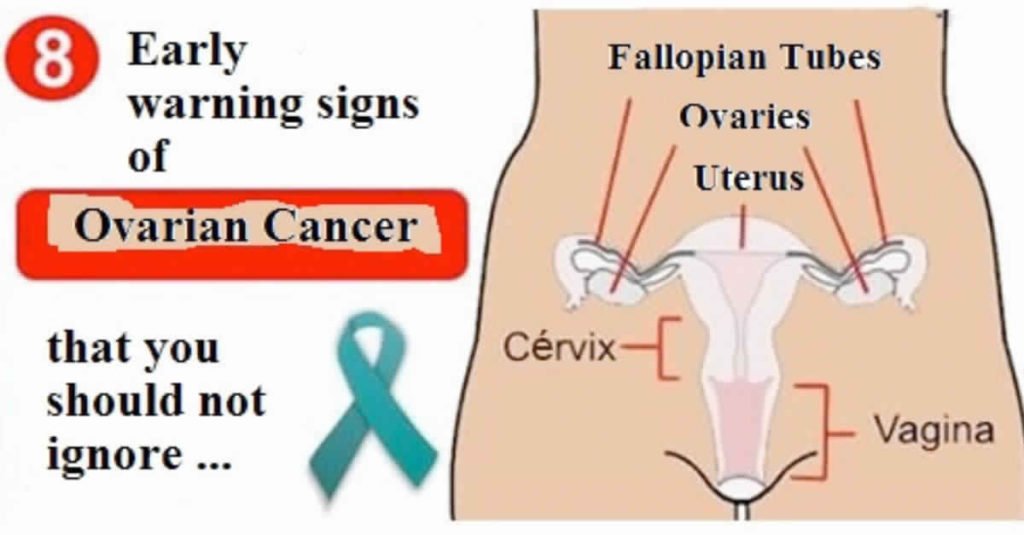Over the past decade, science has confirmed that ovarian cancer has symptoms and it was not the silent killer it was known to be.
Ovarian cancer may cause several symptoms and signs. Women are more likely to have symptoms, if the disease has spread beyond the ovaries. But even the early stages of ovarian cancer can cause them.
The most common symptoms include the following:
1. Bloating
Bloating is familiar during PMS or when you eat too much. But women with ovarian cancer may experience bloating every day and there is no relief.
It may be mild bloating, such as feeling a little full or may be severe, where it is difficult to button pants. Is is often often misdiagnosed as, gas, diet, constipation or other gastrointestinal ailments.
To Do:
Call your doctor if you are bloated every day for at least 2 weeks and you do not get relief from OTC/over-the-counter-medications such as gas relievers or diuretics.
2. Feeling Full Quickly or Difficulty Eating
Do you feel full even before you have finished an average sized meal and does it occur more often? The feeling of fullness is not the same as lack of appetite, you feel full physically after eating a small amount of food.
To Do:
This is often misdiagnosed as, gastrointestinal ailments or conditions. Sometimes you have to be persistent in your healthcare or even change doctors to get an accurate diagnosis.
3. Pelvic or Abdominal Pain
The same as with bloating, you may experienced pelvic pain during PMS or ovulation. But pelvic pain that happnes when you are not ovulating or menstruating can be an early ovarian cancer symptom. The pain can feel like dull menstrual cramps or more severe. It may require you to lay down and take medications to relieve the pain.
Just always remember that chronic pelvic pain that is not related to menstruation is not normal, regardless of the cause. This can be a serious indicator of something wrong and needs evaluation by your doctor.
To Do:
This is often misdiagnosed as gas, constipation, stress, IBS, PMS and other less serious ailments. It is important to let consult your doctor and know how painful your pelvic pain is and what is needed to help relieve it.
4. Urinary Symptoms (Frequency or Urgency)
Having a strong urge to urinate more often than necessary, even if you have not increased your fluid intake, may warrant a visit to your doctor.
If you feel the urge to urinate and do not actually go, it should also be evaluated by your doctor. A urinalysis may be required to check for abnormalities.
To Do:
This is often misdiagnosed as urinary tract infection. The doctor will prescribe antibiotics for your UTI and make sure you take them all. If the symptoms still persist after finishing the prescribed medication, see your doctor.
The symptoms above are also commonly caused by benign or non-cancerous diseases and by cancers of other organs. But when the caused is ovarian cancer, they tend to be persistent and usually represents a change from normal, such as they occur more often or are more severe.
If a woman have these symptoms more than 12 times a month, it is recommended that she see her doctor, preferably a gynecologist.
Others Symptoms of Ovarian Cancer:
- Abdominal swelling with weight loss
- Back pain
- Constipation
- Fatigue
- Upset stomach
- Pain during sex
- Menstrual changes
The above symptoms are more likely to be caused by other conditions and most of them occur often in women who do not have ovarian cancer.



